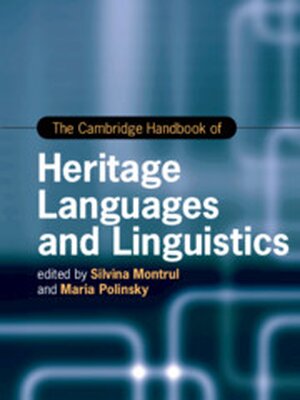
The Cambridge Handbook of Heritage Languages and Linguistics
Edited by Silvina Montrul and Maria Polinsky
University of Illinois at Urbana-Champaign / University of Maryland
With contributions by current and former faculty and graduate students: Abdulkafi Albirini, Elabbas Benmamoun, Melissa Bowles, Tania Ionin, Jill Jegerski, Hyun Sook Kan, Itxaso Rodríguez, James Yoon.
Heritage languages are socio-linguistically minority languages learned in a bilingual environment. They include immigrant languages, aboriginal or indigenous languages and historical minority languages in diverse territories. Heritage language speakers typically grow up in situations of subtractive bilingualism and have variable degrees of knowledge and command of their heritage language. In the last two decades, heritage languages and their speakers have become a central focus of different areas of linguistic research, from bilingual language acquisition, education and language policies to theoretical linguistics. This Handbook provides a state-of-the-art overview of this emerging area of from different perspectives ranging from theoretical linguistics to language education and pedagogy. The Handbook focuses on issues ranging from individual aspects of heritage language knowledge to broader societal, educational, and policy concerns covering global and international contexts. The Handbook presents comprehensive data on a large variety of heritage languages all over the world.